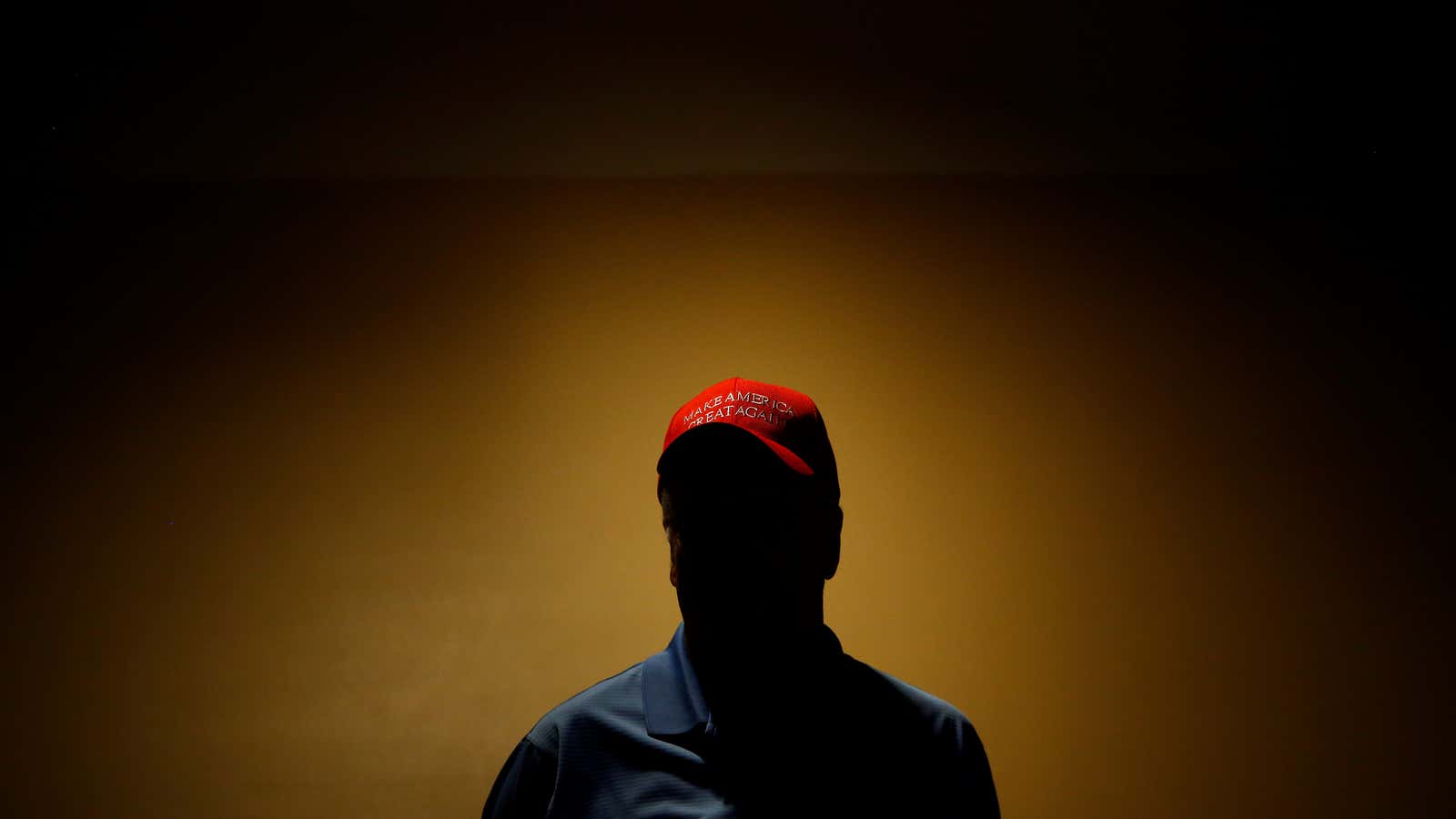Earlier this week, Twitter announced that it was temporarily banning several accounts linked to so-called “alt-right” white supremacist groups, because they had violated the company’s hateful conduct policy.
Progressives applauded Twitter’s stance, but some are now calling on Twitter users to do away with the term “alt-right” altogether. They argue that it obscures the truth about what the group believes. By legitimizing and sanitizing bigotry, the argument goes, the term “alt-right” could become a powerful recruiting tool. Among the critics is a man who knows a thing or two about buzzwords: William Gibson, author of the influential cyberpunk novel Neuromancer, who coined the term “cyberspace” in 1982.
On Nov. 16, he tweeted:
Others have made the same appeal:
Some have noted that “alt-right” is perilously close to the term “alt-rock,” which lends the movement the cool factor of a 1990s grunge band.
As journalists have pointed out, the meaning of the term “alt-right” is nebulous and ever-changing. It first started circulating in 2008, according to the Southern Poverty Law Center, when it was popularized by Richard Spencer, head of the National Policy Institute, a white nationalist think tank. Members of the alternative group began to find each other, mostly in fringe online chat groups, following the decline of the paleoconservative movement, which Reason calls, “a wing of the right that had spent the ’80s and ’90s arguing that the conservative mainstream was too globalist and too egalitarian.”
Ironically, it was a late-August speech by presidential nominee Hillary Clinton that sent thousands of Americans to Google, searching for the label’s definition. Clinton had brought attention to her opponent Donald Trump’s many links to the radical alt-right, chief among them his then-new campaign manager Steve Bannon, who is considered a spokesman for the movement. This week president-elect Trump named Bannon, also the head of the far-right Breitbart News, his “chief strategist and senior counselor.”
That appointment has once again exalted the term ”alt-right” in the news. Some progressives see Bannon’s arrival at the White House as a threat to democracy itself, and lawmakers and political groups are lobbying to have him removed.
Still, the values that define the movement remain hazy. The ideology is “often associated with efforts on the far right to preserve ‘white identity,’ oppose multiculturalism, and defend ‘Western values,'” according to the Associated Press. Some members choose to call themselves “Europeanists” or “white nationalists,” rather than racists or anti-semites, and some believe races should live separately, according to The Economist. The alt-right “thinks that calling a podcast ‘The Daily Shoah’ is striking a bold blow for freedom of speech and against political correctness” and sees misogyny “as a bold rebellion against the prevailing culture,” the magazine has said.
Bannon, perhaps strategically, has left things vague. “Look, are there some people that are white nationalists that are attracted to some of the philosophies of the alt-right? Maybe,” he said in Mother Jones. “Are there some people that are anti-Semitic that are attracted? Maybe. Right? Maybe some people are attracted to the alt-right that are homophobes, right? But that’s just like, there are certain elements of the progressive left and the hard left that attract certain elements.”
Mainstream conservatives have their own gripes about the term. Calling neo-nazis “the alt-right,” for instance, creates the impression that they are a valid option under the “right” umbrella. “To call this collection of largely anonymous malcontents members of a ‘conservative’ movement is simply fallacious,” argues Noah Rothman of Commentary, adding that there is little the alt-right wants to conserve about America.
A Change.org user in Los Angeles has started a small petition calling for the boycott of media outlets that refer to the racist group as “alt-right.” For now, however, the term is a placeholder, with no good substitute in sight.
